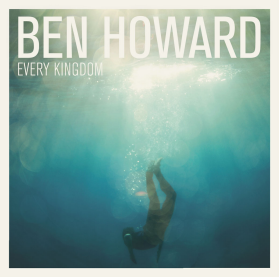By Kenneth Muir (Contributor) – Email
Print Edition: February 1, 2012
 This past fall I consumed Mumford and Sons’ Sigh No More album, and found the revival of mainstream folk music as an utterly refreshing change. Nowadays, pop music tends to saturate the radio waves like an antibiotic-resistant bacteria, leaving those of us who actually have a refined taste of music disillusioned, disheveled and ultimately discouraged by what the future of music may be if the only recipe needed to make a high-selling album is simply one part auto-tune and two parts “heavy beats.”
This past fall I consumed Mumford and Sons’ Sigh No More album, and found the revival of mainstream folk music as an utterly refreshing change. Nowadays, pop music tends to saturate the radio waves like an antibiotic-resistant bacteria, leaving those of us who actually have a refined taste of music disillusioned, disheveled and ultimately discouraged by what the future of music may be if the only recipe needed to make a high-selling album is simply one part auto-tune and two parts “heavy beats.”
That said, it admittedly took some coaxing before I finally warmed up to Mumford and Sons. I found their lyrics too outlandish to be genuine; it sounded like they were trying too hard to make a good impression, somehow. The lyrics felt forced and didn’t really sound like they flowed naturally. Irrespective of that one niggling flaw, the album was definitely worth listening to, and further, inspired me to look for more folk artists in order to better round out my playlists.
I very quickly came across Ben Howard’s Every Kingdom. Hitting the shelves in the UK last October, this will be his first album, having been recently signed on to Island Records. Howard is only 23, and spends most of his time on his acoustic guitar. He’s joined by Chris Bond, the drummer and double bass player, and the gorgeous India Bourne, who can be seen jumping between the roles of percussionist, bass guitarist and cello player. Howard is the lead singer, leaving the other two to vocally fill out the crescendos. Compared to Mumford and Sons, Ben Howard is a further step into folk territory, lacking any trace of the scant but noticeable alternative rock undertones of the former. Better still, the lyrics flow naturally and are obviously sincere. If you were thinking about getting more into folk music, look no further.
The vocals showcase an anomaly that sometimes occurs in music wherein the voice has no congruency to the look of the singer. Howard’s voice is husky, and very unique, but the man himself just looks like, well, some guy. You wouldn’t think twice of him if you passed him on the street. It therefore comes as a pleasant surprise to hear him sing for the first time. The true talent of his voice is his raw ability to convey his emotions and passion in whatever song he’s performing. It matches very well with the genre of music. Bond and Bourne’s abilities are proficient but remain largely overshadowed (as is the case with most backup vocals).
Instrumentally, they are quietly brilliant, the spotlight being taken mostly by Howard’s acoustic guitar. He uses some very exotic guitar setups, such as in “Black Flies,” which sees open C tuning, with a capo at the third fret on all but the sixth string. In “The Fear,” Howard uses a different variation of open C with a capo at the third. These really display the depth of his musical ability: being able to craft and plan songs in an unintuitive manner. It’s difficult to stumble upon chord progressions using unfamiliar and nonstandard tunings, so assumedly this means that each song was deliberately planned and made before the first string was ever plucked.
The other instruments help give depth to the music, and each song has a slightly different setup. In the music video for “The Fear,” India Bourne can be seen using a standing drum setup and Bond rocks the bass guitar while also working the foot pedals on his own drum set. “The Wolves,” on the other hand, emphasizes Bourne’s cello. In any case, every instrument is used effectively and complements the music well.
Thankfully there’s very little post-production to speak of. If there’s one thing I despise, it’s good music that’s been ruined by post-production, such as in the case of Ed Sheeran (have you ever wanted to hear folk music be mutated into pop music? I didn’t think so). The only noticeable effect given is the moderating of volume levels, to give or take away emphasis in specific instances. Everything on the album could be played live by the trio without any extra hands on deck. In that sense, the music is arguably simplistic, though it doesn’t sound like it’s missing anything.
Every Kingdom won’t officially be released in North America until later this spring, but you can still pick it up right now in any online store, such as Amazon. This is a great album for anyone looking to enhance their palette with some folk. Granted it’s a little farther off the well-beaten mainstream path, even compared to Mumford and Sons, but it is well worth the detour.


